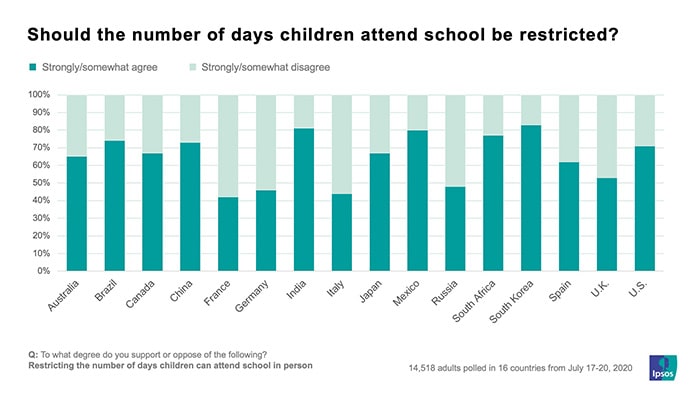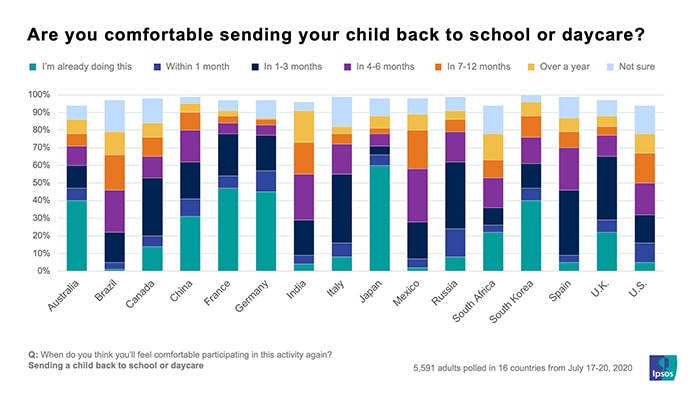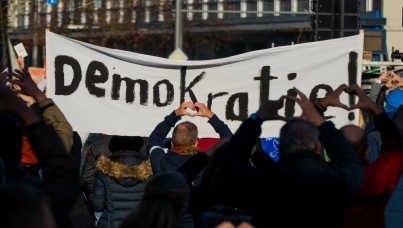Majority want to restrict number of days kids attend school in person with most support in emerging markets
A majority of people across 16 major countries support restricting the number of days children can attend school in person with parents most comfortable to send their children back within six months, according to the latest Ipsos survey.
In a survey of more than 14,500 people conducted from July 17 to 20, a majority of respondents in 12 countries agree with restricting the number of days children can attend school in person. This support is highest in emerging markets of South Korea (83%), India (81%), Mexico (80%), South Africa (77%), Brazil (74%) and China (73%), followed by the United States (71%).
On the other end, a majority of people in European countries of France (58%), Italy (56%), Germany (54%) and Russia (52%) oppose this, followed by those in the United Kingdom (47%).
People in Europe also are most divided on this issue with only 4 percentage points separating those that support and oppose restricting the number of days kids can attend school in Russia, followed by the U.K. (6 points), and Germany (8).

In terms of how comfortable parents are in sending their child back to school or daycare, Japan is the only country in a poll of nearly 5,600 parents where a majority (60%) of people say they are already doing this, followed by France (47%), Germany (45%), Australia and South Korea (40%).
More people across all countries said they would be more comfortable doing this within six months with majority agreement in Russia (71%), Spain (65%), Italy (64%), Mexico (56%), the U.K. (55%), Canada (52%) and India (51%).
The second most likely timeframe for sending kids back to school or daycare is in one to three months with Italians more likely to do this at 39%, followed by those in Russia (38%), Spain (37%) and the U.K. (36%).
About one in five parents in Brazil (18%), Italy (17%), South Africa and the U.S. (16%) remain unsure.




